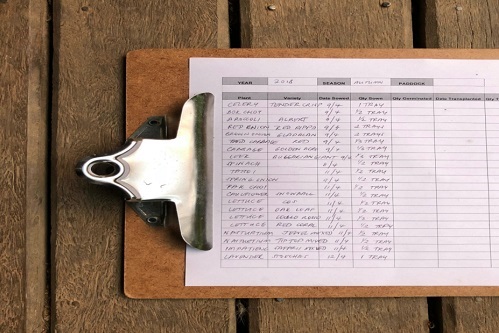Record keeping is the documentation of activities on livestock farms comprehensively and concisely (often in a tabulated form). Serious livestock farmers are expected to take records. The records must be accurate, reliable and up-to-date to be meaningful and useful to decision-making.
Why is record keeping very important?
- The performances of farm animals can be assessed through farm records. The quantity of feed consumed per time, vaccination and medication, number of eggs laid, weekly weight, etc.
- Farm production and financial records reveal if the farm is progressing and making profits.
- Activities of farm management can be assessed easily through record-keeping
- Well-kept records increase the chance of a farm owner securing credit or a loan.
- It will be easy for a farmer to plan and schedule operations on the farm.
- Specific information about the farm or the animals can be retrieved easily from the record.
- A farm owner will be able to make informed decisions with the help of farm records.
What are the records that a commercial livestock farm should keep?
- Production and performance records
- Livestock record book
- Health records
- Labour use book
- Farm diary
- Farm inventory
- Animal identification records
- Livestock products and disposal book
- Cash or bank account book
- Profit and loss account book
- Farm purchases and sales book
Special Rules
It is essential to store all farm records in a very safe place. These records are also vital assets. Hence, they must be treated with care and protected from intruders or unauthorised access. Additionally, limit the access of your farm workers (especially the attendants) to vital farm records such as production and financial records. They cannot be totally trusted and allowing them full access to these records could harm your business. They may reveal or sell the information to your competitors or even use it against you when they are sacked.

